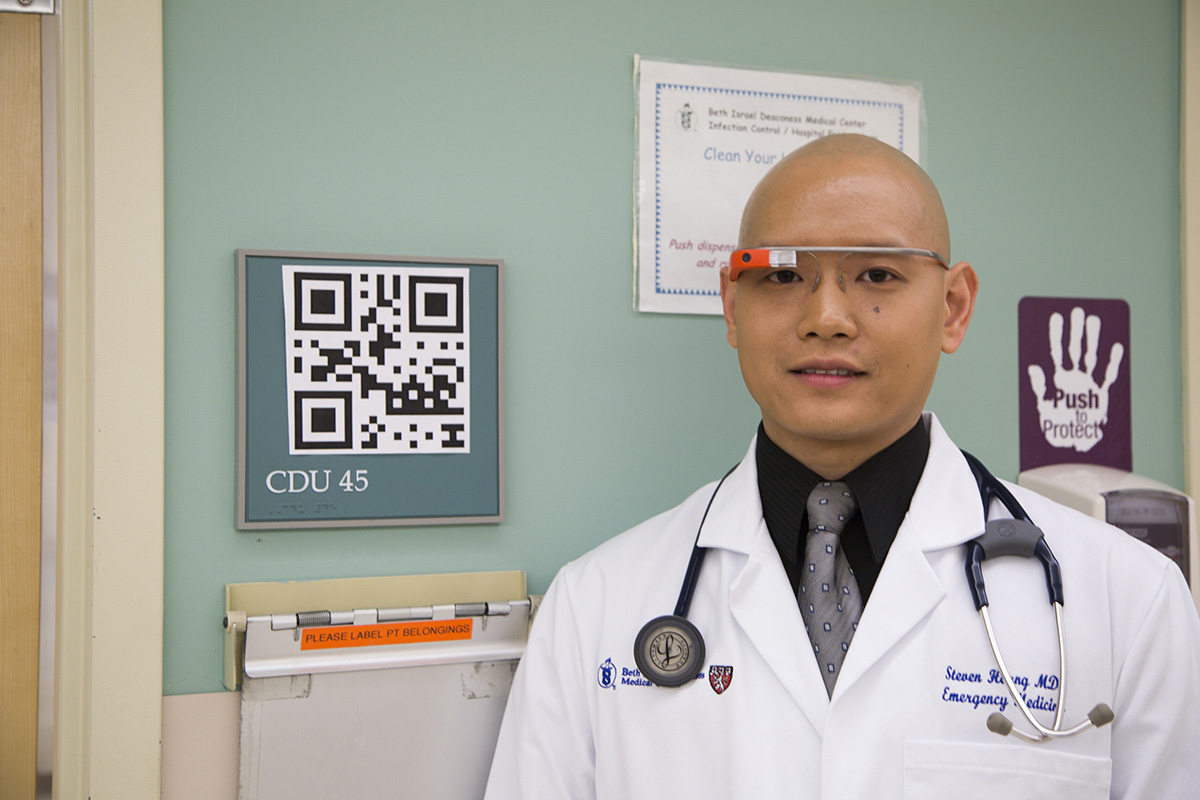Beth Israel Deaconess Medical Center Has an E.R. “Supercomputer”

Horng wearing a past BIDMC endeavor, Google Glass. Photo provided
Researchers at Beth Israel Deaconess Medical Center (BIDMC) are trying to revolutionize critical care using technology—specifically, artificial intelligence.
Doctors at BIDMC have developed a “supercomputer” that can automatically collect and analyze massive amounts of data about a given patient, then synthesize it into highly accurate diagnoses. Previously, much of that data had gone unused due to the time-intensive nature of digging through patient records.
“It’s not about replacing the doctor,” says Steven Horng, the associate director of informatics at Beth Israel and the leader of the project. “It’s about making the doctor more efficient and consistent.”
Horng notes that, while doctors already had access to all of the data this system uses, the technology will be a huge leap towards minimizing human error—Horng says the computer is 96 percent accurate—and reducing patient wait times.
“If you come in with severe chest pain, we’d otherwise have to look through hundreds of physical notes before we could even analyze your medical history,” he says. “Now we have a much quicker way of determining who’s sick and why.”
According to Horng, the computer can also help ease patients’ transitions if they seek care from different hospitals. “Even if you’ve never been to our center before, one of our E.R. technicians can know you like you’re their own patient,” he says.
In addition to spotting diseases, the system can make quick predictions by comparing an E.R. patients to thousands of others with similar medical records. That means the system is capable of projecting outcomes of the individual’s disease, as well as potential times of death.
Although this system is already in use at Beth Israel, the project is far from over. Next on the agenda for Horng’s team is updating the computer to convert medical terms into plain English, aggregate information from many different sources at once, and operate in more bedside computers.
And though more work has to be done, Horng is confident in the impact the computer could have.
“What Google search has done for information technology, we’re doing with healthcare,” Horng says. “This hasn’t been done anywhere else in the world.”


